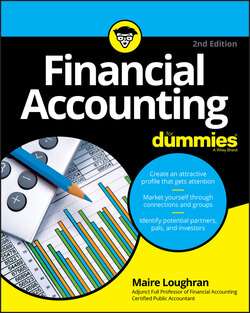Читать книгу Financial Accounting For Dummies - Maire Loughran - Страница 77
Walking through the Origins of Number Crunching
ОглавлениеI’d bet money that your financial accounting textbook takes a walk down memory lane in its first chapter, introducing you to the history of accounting. So I want to touch on a few major points to round out your textbook discussion before I explain current financial accounting standard setting.
If you’ve already taken an accounting history course, you know that accounting dates back to prehistoric times. If not, here are just a few number-crunching historic facts that place accounting in the context of world history:
Cavemen traded beads and other trinkets to acquire food and other basic necessities. These trades required some equitable method of measuring what trinkets were exchanged for how much food, for example, thus originating the concept of keeping track of — or accounting for — items.
Later in history, formal accounting records were kept to make sure subjects were paying the required amount of taxes to the Holy Roman and other empires.
The Industrial Revolution in the 18th and 19th centuries ushered in the mass production of goods through the use of machinery rather than craftsmen working with their hands. Mass production required a more sophisticated approach to recording the movement of goods, services, and money, ramping up the activities and professionalism of the accounting field. It also resulted in the separation of ownership from management.
Accountants plied their trade in a mostly unmonitored environment until the stock market crash of 1929. After this horrific event, the American Institute of Accountants, which is now the American Institute of Certified Public Accountants, partnered with the New York Stock Exchange to agree upon five principles of accounting.
Fast-forwarding to the present, these five principles have expanded into hundreds of principles covering every accounting topic imaginable, from how financial statements are prepared to accounting for different types of businesses.
If the financial accounting class you’re taking now is your first accounting or business class, you may be wondering why you have to record accounting events in such a nit-picky fashion. You may also wonder who the head nit-pickers are and from whence they get their authority. This chapter answers both questions and gives you a good foundation to tie into the information given in your financial accounting textbook.
